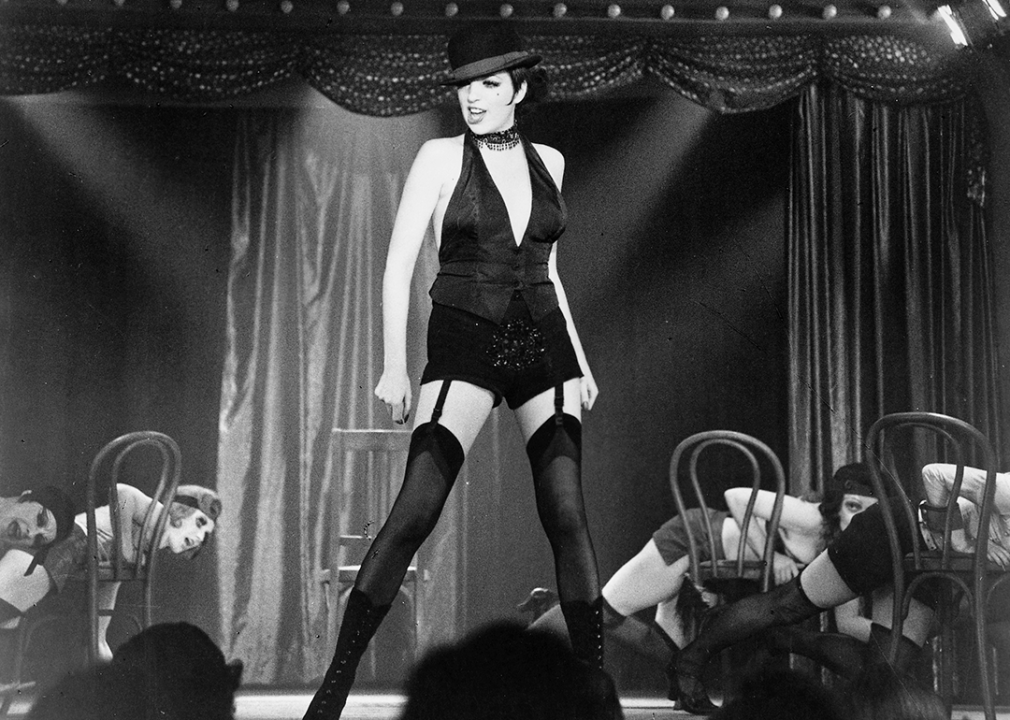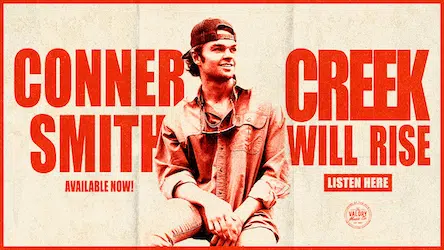Frazer Harrison // Getty Images The Oscars may be the biggest (and oldest) awards in the film industry, but they’re also the most mysterious for many outsiders. For those of us in the audience who just love movies and want to see them celebrated, it’s not always clear how the dozens of nominees are selected, classified, and voted on. It turns out the process is much simpler than you might think. For many of the individual awards, there are a handful of guidelines that the project must meet in order to be eligible for consideration–though many of these guidelines have changed since 2020 to help create a more diverse selection of films. As long as the film meets all the necessary criteria, studios submit their films for awards consideration by the Academy of Motion Picture Arts and Sciences–and then spend millions of dollars on popularity campaigns in attempt to win the votes of registered Academy members, who select their favorites via official ballots. Some categories, like Best Picture, are decided by preferential ballot, where voters rank the nominated films in the category by order of preference. Theoretically, these methods of voting and campaigning are meant to ensure that the most widely liked films and performances are recognized, but the process isn’t perfect. Often, what most cinephiles think of as the most deserving or popular projects still don’t win. In fact, there have been a number of instances over the years where films have garnered an impressive number of wins or nominations, but lost out on the biggest prize of the night: Best Picture. Sometimes, this is because a film is more appreciated for its technical achievements–think “Life of Pi” and “Gravity”–or for its stylistic choices, like Wes Anderson’s “The Grand Budapest Hotel.” Other times, as with now-classic films like “Citizen Kane,” many would agree that the Academy simply gets it wrong. Stacker used data from the Academy Awards to look at the films that won the most Oscars at each of the past 90 Academy Awards ceremonies and highlighted 25 that were up for Best Picture but didn’t take home the award, despite their dominance across the rest of their respective ceremonies. The films are ranked by least to most overall wins, with ties broken by the film with the most nominations. In the case of ties between films nominated the same year for most Oscar wins, all films were included on the list. Some of the films included on the list tied with the eventual Best Picture winner for the most wins from their ceremony. Between box office hits like “Inception” and perennial favorites like “Butch Cassidy and the Sundance Kid,” there are sure to be a few titles on here whose Best Picture losses still make fans’ blood boil. #25. Bohemian Rhapsody Frazer Harrison // Getty Images – Ceremony: 91st (2019) – Oscar wins: 4 – Oscar nominations: 5 Rami Malek stars in this musician biopic that follows the life and rise to fame of Queen frontman Freddie Mercury. Though hugely popular at the box office–the film grossed nearly $1 billion worldwide–it was decidedly less of a hit with critics, who bemoaned the way it glossed over Mercury’s sexuality and failed to delve into the trickier parts of his life. The rumors surrounding director Bryan Singer’s alleged misconduct and subsequent firing from the film also likely complicated the film’s shot at a Best Picture win before voting even began. #24. The Informer American Stock // Getty Images – Ceremony: 8th (1936) – Oscar wins: 4 – Oscar nominations: 6 Based on a novel of the same name, “The Informer” follows a disgraced Irish Republican who reports on his fellow IRA comrades and then struggles to deal with the repercussions of such a major betrayal. Directed by John Ford, the movie was described by The New York Times as a “sleeper” thanks to its unremarked-upon release, but by the time Best Picture voting rolled around, it seemed like a shoo-in for the top prize due to its number of nominations. In the end, however, it lost to “Mutiny on the Bounty,” which won Best Picture but lost in all seven of its other nominated categories. #22. Butch Cassidy and the Sundance Kid (tie) Jason Merritt // Getty Images – Ceremony: 83rd (2011) – Oscar wins: 4 – Oscar nominations: 8 Directed by Christopher Nolan, this twisty sci-fi blockbuster takes place in a world where dream-sharing technology exists and history can be changed by implanting ideas in an individual’s subconscious. The movie’s smart scripting and ingenious acting from the likes of Leonardo DiCaprio, Cillian Murphy, Marion Cotillard, and Elliot Page had some betting that it would take home the Oscar’s top honor, but in the end, it lost to Tom Hooper’s “The King’s Speech,” which also won four Oscars that year. Notably, while “Inception” was nominated for both Best Picture and Best Screenplay, Nolan himself was left off of the Best Director ballot that year, an oversight that was finally rectified with his nomination for “Dunkirk” at the 2018 Oscars, as well as his “Oppenheimer” directing nod in 2024. #18. Raiders of the Lost Ark (tie) Sunset Boulevard/Corbis via Getty Images – Ceremony: 54th (1982) – Oscar wins: 4 – Oscar nominations: 8 Generally considered one of the best action movies ever made, “Raiders of the Lost Ark” launched the popular “Indiana Jones” film franchise, spawning four sequels released between 1984 and 2023. The Steven Spielberg-directed caper follows a globe-trotting archeologist, iconically depicted by Harrison Ford, as he races to find the legendary Ark of the Covenant ahead of the Nazi army. Given how influential the film has been on cinema and pop culture as a whole, it’s shocking to recall that it didn’t win the Best Picture trophy, losing to sports drama “Chariots of Fire.” #18. All the President’s Men (tie) Screen Archives // Getty Images – Ceremony: 49th (1977) – Oscar wins: 4 – Oscar nominations: 8 “All the President’s Men,” a political thriller about the Watergate scandal starring Robert Redford and Dustin Hoffman, lost out on the Best Picture Oscar in a year full of undeniably strong contenders, including “Taxi Driver,” “Network,” and the eventual winner, “Rocky.” At the time, “All the President’s Men” was well-positioned to take home the award, based on both positive critical response and box office popularity. In retrospect, the Academy would likely make a different choice: In a poll of hundreds of Academy members by The Hollywood Reporter in 2015, Oscars voters indicated they’d give the trophy to the drama today if given the chance to have a do-over. #18. The Heiress (tie) FilmPublicityArchive/United Archives via Getty Images – Ceremony: 22nd (1950) – Oscar wins: 4 – Oscar nominations: 8 Based on a Henry James novel titled “Washington Square,” “The Heiress” follows a wealthy young woman who falls in love with a man who’s (possibly) nothing more than a gold digger. Dubbed “a triumph of classic Hollywood filmmaking” by the Criterion Collection, the movie wasn’t a huge commercial success, but it did so well with critics that it earned Olivia de Havilland her second Best Actress trophy. However, it lost the Best Picture award to “All the King’s Men.” #16. The Grand Budapest Hotel (tie) Kevin Winter // Getty Images – Ceremony: 87th (2015) – Oscar wins: 4 – Oscar nominations: 9 Written and directed by Wes Anderson, “The Grand Budapest Hotel” follows the drama and scandals of the staff at a ritzy hotel in Eastern Europe. While critics and fans alike delighted in the film’s simultaneous whimsy, comedy, and seriousness, the Academy wasn’t quite as enthused. Despite being nominated for Best Picture, Director, and Original Screenplay, the film lost out on those categories to “Birdman.” Writing for Slate, David Haglund predicted the film’s Best Picture and Best Original Screenplay losses, noting that Anderson’s films have never been popular among the Academy because he doesn’t campaign for awards, his films are comedy-oriented rather than self-serious, and his style is too “distinctive.” #16. Cleopatra (tie) Bettmann // Getty Images – Ceremony: 36th (1964) – Oscar wins: 4 – Oscar nominations: 9 You don’t need to have been around in the ’60s, or even to have ever watched “Cleopatra,” to be aware of the drama that surrounded the making of the historical epic. From nearly bankrupting 20th Century Fox to the affair between its leads, Richard Burton and Elizabeth Taylor, the film was a tabloid spectacle from the very beginning–which, of course, meant it was a must-see for audiences. In the end, it was the highest-grossing movie of 1963, but even its popularity couldn’t overcome its weak Oscar campaign in the eyes of the Academy. #15. Network FilmPublicityArchive/United Archives via Getty Images – Ceremony: 49th (1977) – Oscar wins: 4 – Oscar nominations: 10 Described retrospectively by Vanity Fair as a “scorching satire,” “Network” is a drama about the demise of a fictional TV network. Released to critical acclaim, the movie won a slate of Oscars, including Best Original Screenplay, Best Actor, Best Actress, and Best Supporting Actress, which Beatrice Straight won despite only being on screen for five minutes. The film lost in that year’s jam-packed Best Picture category, however, to “Rocky.” Despite that loss, “Network” remains, for many critics, one of the best ever made. #14. Life of Pi Ian West/PA Images via Getty Images – Ceremony: 85th (2013) – Oscar wins: 4 – Oscar nominations: 11 Based on a novel of the same name by Yann Martel, “Life of Pi” follows two shipwreck survivors–a teenage boy and a Bengal tiger–as they float around the Pacific Ocean in a lifeboat for 227 days awaiting rescue. The movie was quite successful at the box office, particularly internationally, and it ultimately won Oscars for Best Director, Best Cinematography, Best Visual Effects, and Best Original Score. However, it ultimately lost the Oscar for Best Picture to Ben Affleck’s “Argo.” “Life of Pi” received a fair share of backlash after winning the Oscar for Best Cinematography since the film’s visuals were mostly digitally created. #13. The Song of Bernadette 20th Century Fox/Getty Images – Ceremony: 16th (1944) – Oscar wins: 4 – Oscar nominations: 12 In “The Song of Bernadette,” Jennifer Jones plays the titular character, a young woman who allegedly experienced 18 visions of the Virgin Mary and was eventually canonized as a saint. While the film swept the inaugural Golden Globes, taking home Best Picture, Best Director, and Best Actress, it was less successful at the Oscars, where it lost several major awards to “Casablanca.” Considering which of the two films has stood the test of time, few could successfully argue that “Bernadette” was cheated in the Best Picture category. #12. The Lord of the Rings: The Fellowship of the Ring New Line/WireImage // Getty Images – Ceremony: 74th (2002) – Oscar wins: 4 – Oscar nominations: 13 The first installment in Peter Jackson’s J.R.R. Tolkien adaptations, “The Lord of the Rings: The Fellowship of the Ring” was a groundbreaking movie. The fantasy film was an instant hit with critics and audiences alike, with one Empire reviewer calling it “the first installment of the best fantasy epic in motion picture history.” While “Fellowship of the Ring” took home a decent number of awards, it was perhaps a little too ahead of its time to win Best Picture–that wouldn’t happen for the “Lord of the Rings” franchise until the 2004 Oscars ceremony, when “Return of the King” swept every category for which it was nominated, winning 11 Oscars. Nonetheless, “Fellowship of the Ring” broke genre barriers that had limited the success of fantasy, science fiction, and horror films previously at the Academy Awards. #11. The King and I

Best Picture losers that won the most Oscars at their ceremony
Feb 13, 2024 | 12:00 PM




